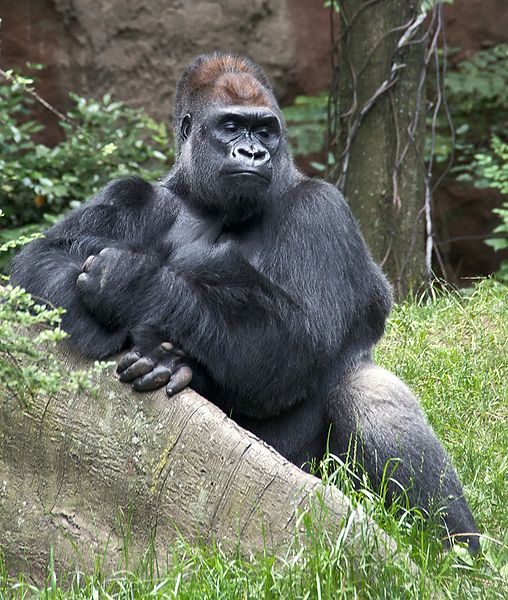Malaria is responsible for over 1 million deaths a year, and the parasite that causes the majority of cases -Plasmodium falciparum- is thought to have been transferred to humans when we diverged from our closest ancestor, the chimpanzee. New research published in the journal Nature however suggests that chimps are not to blame for this deadly disease, and that human malaria is younger than we thought.
 Researchers at Alabama Medical School in Birmingham, USA, with teams across Europe and Central Africa, collected over 3,000 samples of faeces from wild chimpanzees, bonobos, and eastern and western gorillas. Using DNA analysis and amplification techniques they identified that the parasite that most closely resembled Plasmodium falciparum (responsible for the greatest burden of human disease) in the faeces of western gorillas.
Researchers at Alabama Medical School in Birmingham, USA, with teams across Europe and Central Africa, collected over 3,000 samples of faeces from wild chimpanzees, bonobos, and eastern and western gorillas. Using DNA analysis and amplification techniques they identified that the parasite that most closely resembled Plasmodium falciparum (responsible for the greatest burden of human disease) in the faeces of western gorillas.
This finding suggests that malaria reached humans from the gorilla population, which the researchers suggest is likely to have been a one-off event. They also found that though species of Plasmodium were isolated in the faeces of both chimpanzees and gorillas, there was little evidence of transfer between the different apes. This begs the question of what the exact requirements for transfer are.
As this research goes against the widely held theory that malaria evolved alongside humans when our ancestors diverged from our common ancestor with chimps several million years ago, the timeline of malaria - and when exactly the first human caught this disease, is now unclear. Another question that remains unanswered is whether different species of malaria continue to be transmitted to humans living in close proximity to other primates, or could make the species jump again in the future.
Listen to the special edition Podcast about this story here.










Comments
Add a comment